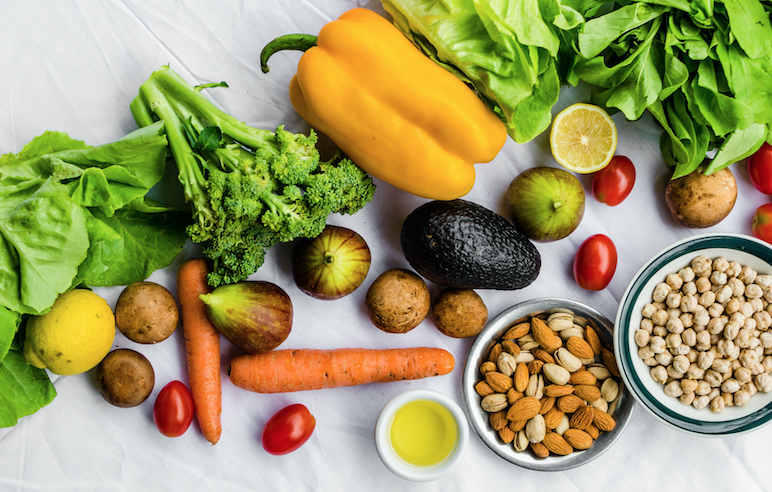5 Best Foods For Your Heart
October 28 2019
Taking care of heart health is something all of us should be mindful of and thankfully as more and more health research is undertaken, we are discovering which diets and foods can be the most beneficial. More recently, greater attention is being paid to a predominately plant-based diet in terms of reducing risk of cardiovascular disease. If you are wondering how this translates to your plate, here are five of the best foods, mostly plants, that nutritionist, chef and author of Falling in Love with Food, Zoe Bingley-Pullin, recommends you consume regularly for your heart.
Raw nuts –walnuts, brazil nuts, cashews, hazelnuts and macadamia nuts
Raw nuts are a great source of plant-based protein, healthy fats, fibre, antioxidants, vitamins and minerals. In terms of heart health, research has suggested that eating around 20g of nuts daily can cut peoples risk of coronary heart disease by nearly 30%. Walnuts have one of the highest antioxidant content of all nuts and are a particularly good choice when it comes to heart health.
Hemp seeds, flaxseeds seeds (including oils) and oily fish (salmon, mackerel, sardines)
Hemp seeds, flaxseeds and oily fish are sources of omega-3 fatty acids. It’s quite likely you have heard of these fats because they are ‘essential’ – they cannot be made by the body and must be consumed in the diet. Omega 3 fats are particularly good for heart health because they are linked to a reduced cardiovascular disease risk, due to their ability to reduce triglycerides, improve blood vessel elasticity and reduce the potential for blood clots and inflammation. When purchasing hemp or flaxseed oil, make sure to purchase straight from the fridge and store the bottle in the fridge because these oils are very susceptible to becoming rancid.
Oats, oat bran, barley and apples – soluble fibre
Fibre is a great tool to help support heart health because fibre can help to lower blood pressure, cholesterol and help us to maintain a healthy weight. While all fibre is helpful, soluble fibre is particularly good for lowering cholesterol because it binds to cholesterol and helps with the removal of cholesterol from the body. Always remember, when introducing more fibre to your diet, start slowly to allow your digestive system to adapt and to avoid any unwanted side effects!
Legumes
Although legumes are also high in fibre, they get their own mention! Legumes not only offer fibre and lean plant-based protein, but also rich in an array of vitamins and minerals. In addition, legumes are very low in unhealthy trans and saturated fats, which should be limited in the diet. This is a powerful combination when it comes to heart health and makes legumes a good choice to use as a replacement for animal-based protein in the diet on a regular basis. Thankfully, there are a wide variety of legumes to choose from, which helps to ward off food boredom, some popular picks include – chickpeas, lentils, black beans, red kidney beans, cannellini beans and mixed beans. If using canned legumes, opt for organic and salt reduced and make sure to rinse well before using.
Herbs and spices – turmeric, garlic, rosemary, cinnamon, ginger and paprika
Herbs and spices offer a rich source of antioxidants and anti-inflammatory compounds, both of which are beneficial for heart health. This is partly because oxidative stress is a known contributor to heart disease and by eating antioxidant rich spices, it can help to combat oxidative stress and in turn help protect against heart disease. With that being said, next time you are cooking a meal, try adding some spices to season the dish as this will not only boost flavour but may also help to support heart health.
—
Sourced from Prevention.
